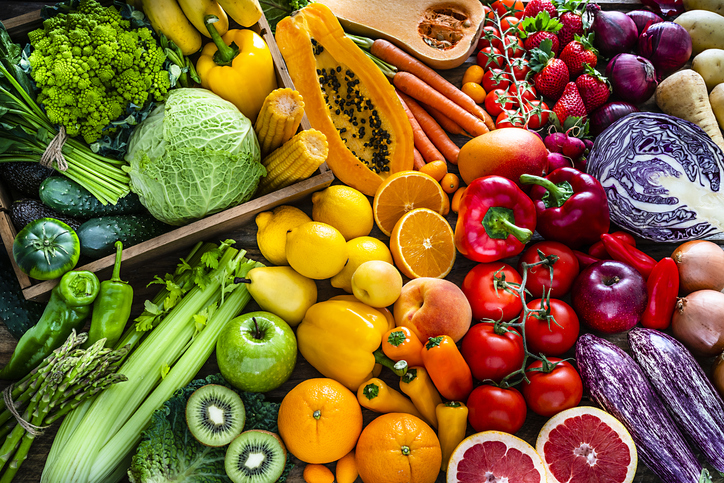
While we do not know why some people get cancer and others don’t, multiple studies have shown that certain foods we eat and the amount of exercise we get each day may increase our risk for developing cancer or cancer recurrence.
Kristin Cuculovski, a registered dietitian with Northside Hospital Cancer Institute, recommends focusing on food and lifestyle choices you can control.
“Strive to be at a healthy body weight, eat a healthy diet, and stay active,” Cuculovski says.
“Choose mostly plant-based foods such as fruits, vegetables and whole grains,” she adds. “Eat a variety of foods, and choose brightly colored or strong-flavored vegetables and fruits.”
Here are more tips from the American Institute for Cancer Research:
Be as lean as possible without becoming underweight.
Maintaining a healthy weight decreases the risk of cancer recurrence. It also decreases the risk of other chronic diseases, like diabetes and heart disease. Your dietitian or doctor can help you determine what a healthy weight is for you.
Eat a variety of vegetables, fruits, whole grains, and legumes or beans.
Vegetables, fruits, whole grains and beans should take up at least two-thirds of your plate. Vary the colors of your fruits and vegetables in your diet to increase the amount of vitamins, minerals and phytonutrient (helpful chemicals found in plant foods) you eat. Phytonutrients protect the cells in our bodies from damage that can lead to cancer.
Limit consumption of red meats (beef, pork and lamb) and avoid processed meats.
To reduce your cancer risk, eat no more than 18 ounces of red meat per week. Red meat includes beef, pork, and lamb. Eating greater than 18 ounces of red meet per week has been linked to increased colon cancer risk. It also is best to avoid smoked, salted and cured meats, such as cold cuts, bacon, sausage and ham.
Avoid sugary drinks and limit consumption of energy-dense foods (particularly processed foods high in added sugar, low in fiber or high in fat).
Examples include soda, cookies, cakes, chips, etc.
Limit alcohol to two drinks a day for men, one for women.
Despite some evidence linking moderate alcohol consumption to lower risk for heart disease, this protective effect does not apply to cancer. The American Institute for Cancer Research recommends avoiding even small amounts of alcohol. If you do choose to drink, limit it to two per day for men and one drink per day for women.
Limit eating salty foods and foods processed with salt and sodium.
Most of us get more sodium than we need from processed foods. Try not to use the saltshaker, and read food labels to help you choose foods with less than 300 mg of sodium per serving.
Do not rely on supplements to protect against cancer.
Use of dietary supplements can increase the risk of certain cancers and other health conditions. Ask your doctor or dietitian before taking any dietary supplements.
Be physically active for at least 30 minutes every day.
Try to get at least 30 minutes of moderate activity daily. Along with eating a healthy diet, being active reduces your risk of cancer, diabetes, heart disease, stroke and other serious health problems.
A registered dietitian nutritionist (RDN) can assist you in individualizing your eating plan to meet your specific needs and goals.
Learn more about making health choices:
- American Institute for Cancer Research
- American Cancer Society
- National Cancer Institute
- MyPlate (U.S. Department of Agriculture)
